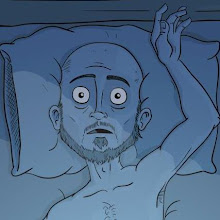
The early 1960s proved to be turbulent times for the world. The threat of a third world war, indeed, a nuclear war was all too real and a stalemate between the east and west existed. Stanley Kubrick, having just completed Lolita became somewhat obsessed with the subject of nuclear deterrents, and set about approaching the subject for his next film. Kubrick obtained the rights to Peter George's novel 'Red Alert' and set about creating a serious, dark, prophetic thriller about the threat of nuclear war. However, Kubrick realized that all elements of the subject could not be covered in a serious drama, so he set about creating a darkly comic satire of the idea of a nuclear third world war. Out of this idea came Dr. Strangelove or: How I Learned to Stop Worrying and Love the Bomb, one of the finest comedies of the twentieth century.
Set in three locations, the Presidential War Room, the cramped interior of a B-52 Bomber, and the office of US Air Force Brigadier General Jack D. Ripper, Strangelove opens with Ripper ordering an all out nuclear strike on the Soviet Union. Ripper, played by Sterling Hayden is obsessed with the communist threat, and feels the only way to best the Russians is to supersede the politicians in Washington and order the attack himself. Arriving too late to stop Ripper is Group Captain Lionel Mandrake (Peter Sellers), a British officer who must witness first hand, Ripper's lunacy and mad theories.
Meanwhile, in the US Government War Room, President Merkin Muffley (Sellers again) must try to diffuse the situation with the Russians, gain control of his own military, fend off gung-ho General Turgidson (George C. Scott) and deal with mad-cap ex Nazi Dr. Strangelove (Sellers yet again), who's ideas sound like they've been presented to another leader from history, all be it a more sinister leader.
And on a sole B-52 bomber, Major T.J. 'King' Kong (Slim Pickens) is determined to deliver his payload to the 'Ruskies' at any cost.
Kubrick's comedy is first and foremost a satire, a comedic warning of the folly of attacking an enemy without provocation and the consequences of such drastic decisions. The film is such a well written and precise piece of work that it still holds up today as an anti-war film. But along with the message comes some of the finest performances from the ensemble cast. Peter Sellers is at his career best playing three distinct roles. Group Captain Mandrake is the typical British officer, struggling to retain his stiff upper lip as he deals with the insane Brigadier General Ripper. President Muffley is a meek individual, but the only sane man in a room full of lunatics, the epitome being Dr. Strangelove himself. Sellers improvised most of his performances, to such a hilarious degree that you can still spot some individuals struggling to keep a straight face as Strangelove battles with his former Nazi personality that is bursting to take over his body.
Yet this is not a one man show. George C. Scott plays against type in his first comedic role. His General Turgidson is a young boy in a man's body, unbelievably excited at the prospect of attacking the Russians while sulking when scolded by the President. And it is Slim Pickens who provides the classic image from the film. His Major Kong is the Texan pilot whooping and hollering as he rides the nuclear bomb to it's destiny.
Dr. Strangelove comes as close as a film comes to being a perfect comedy. The script, written by Kubrick and Terry Southern is laugh out loud hilarious while still retaining a caustic edge as a response to the nuclear fears of the sixties. Each performance stands out on it's own, with the limelight somewhat stolen by Sellers, who is on top form. Kubrick's direction is as perfect as it ever was, handling a subject that is serious but comedic at the same time. When it comes to classic movies, they don't come more brilliant than this. And as war films go, Dr. Strangelove is one of the greatest anti-war films ever made.



No comments:
Post a Comment